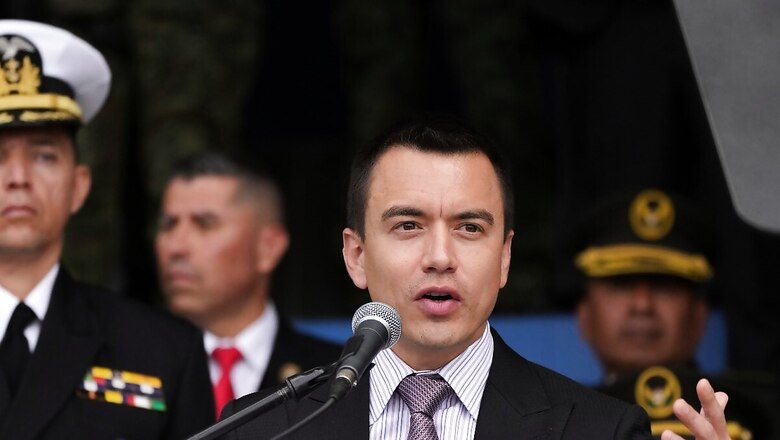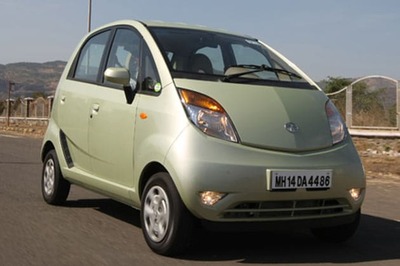
views
Ecuador on Wednesday ordered all public and private workers to stay home for two days as critically low water levels at hydroelectric plants sparked a major power crisis in the country.
President Daniel Noboa decreed “the suspension of the working day” on Thursday and Friday, saying the crisis was a result of “environmental circumstances” but also “unheard-of acts of corruption and negligence.”
The country has been experiencing blackouts of up to six hours. The government has blamed the situation on intentional sabotage from high-level officials who hid the severity of the crisis.
A government statement on Wednesday said the reservoir serving the country’s Mazar hydroelectric dam stood completely empty, while the nearby Paute dam had storage levels of four percent.
Water at Ecuador’s largest hydroelectric plant, Coca Codo Sinclair, is 40 percent lower than its historic average.
Noboa declared an emergency in the electricity sector on Tuesday, and replaced Energy Minister Andrea Arrobo.
According to the government statement, a probe showed “indications that high-level officials,” including Arrobo, had “intentionally hidden information crucial to the functioning of the national energy system.”
“Warnings and alerts to the Energy Crisis Committee were suppressed and undone” to ensure the severity of the situation was not made known in time for actions to be taken, it added.
The government has filed a complaint with the prosecutor’s office against 22 “saboteurs who sought to harm all Ecuadorians.”
Ecuador’s power crisis coincides with neighboring Colombia halting exports of electricity to the country, as its own hydropower plants stand at near-critical levels due to a severe dry spell.
Political sabotage
The energy crisis comes just days before a referendum on Sunday in which voters will decide whether or not to greenlight tougher measures against organized crime in a country gripped by bloody gang wars.
Noboa has linked the power crunch to the current political climate.
“They wanted to ruin us with sabotage in the electrical sector, they wanted to ruin us with a dirty campaign … because they are nervous because the ‘Yes’ vote is going to win,” Noboa said Wednesday.
Once a bastion of peace situated between major cocaine producers, Ecuador has been plunged into crisis after years of expansion by the transnational cartels that use its ports to ship the drug to the United States and Europe.
In January, the president declared that Ecuador was in a state of “internal armed conflict” against around 20 criminal groups.
That came after a spasm of violence sparked by the prison escape of a major druglord, who has yet to be recaptured.
Noboa imposed a state of emergency and deployed soldiers to retake control of the country’s prisons, which had become the nerve center — and battleground — for gangs linked to Mexican and Colombian cartels.
Noboa took office in November after being elected Ecuador’s youngest-ever president for 18 months, to complete the four-year term of predecessor Guillermo Lasso, who quit to avoid possible impeachment.




















Comments
0 comment